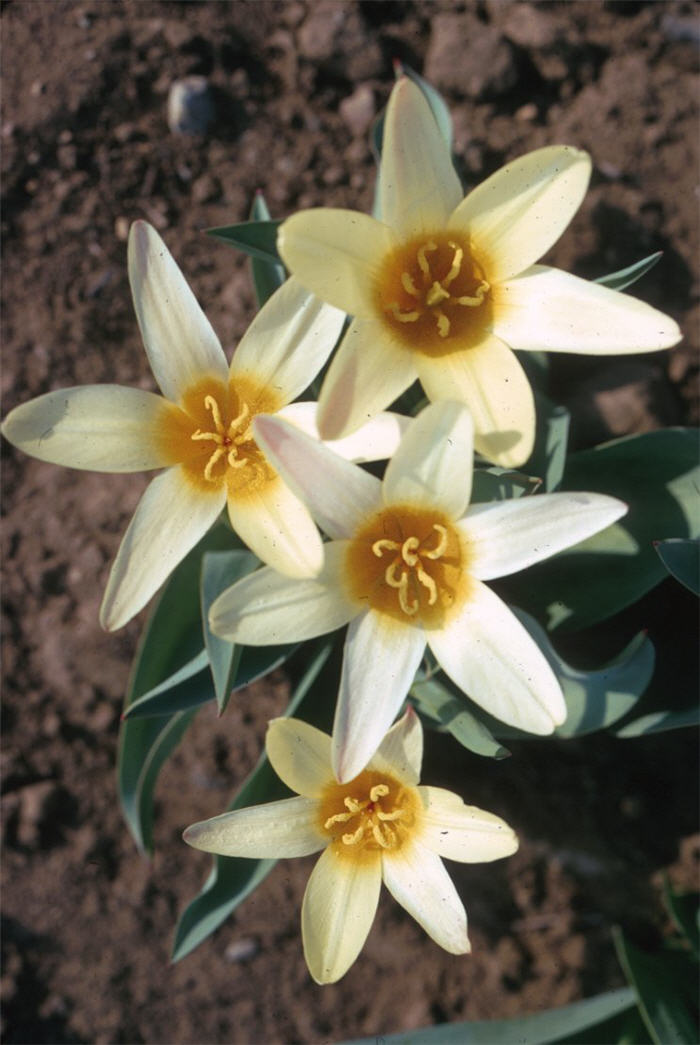| Botanical Name: Tulipa kaufmanniana | |
| Common Name: Kaufmann Tulip |

-
Anatomy
-
Culture
-
Design
Plant Type
Perennial, Bulb
Height Range
Under 1'
Flower Color
Red, Yellow, White, Multi-Colored
Flower Season
Spring
Leaf Color
Green, Red, Variegated
Bark Color
n/a
Fruit Color
n/a
Fruit Season
n/a
Sun
Full
Water
Low, Medium
Growth Rate
Moderate
Soil Type
Sandy, Clay, Loam
Soil Condition
Average, Rich, Well-drained, Dry
Soil pH
Neutral
Adverse Factors
n/a
Design Styles
English Cottage, Formal, Japanese, Mediterranean, Ranch
Accenting Features
Showy Flowers
Seasonal Interest
Spring
Location Uses
Entry, Perennial Border, Parking Strip, Patio, Raised Planter, Walkways
Special Uses
Container, Cut Flowers, Mass Planting, Small Spaces
Attracts Wildlife
n/a
Information by: Stephanie Duer
Photographer: Linda Engstrom
Photographer: Linda Engstrom
-
Description
-
Notes
According to Brent Heath, of Brent and Becky's Bulbs, Kaufmann Tulips are a very early tulip, generally low-growing to about 7 to 8 inches tall. The flowers are carmine, red, yellow, to cream, with the paler tulips freqnethly having a carmine blush on the outsides of the petal. The leaves are green and sometimes mottled red. Brent thinks these tulips are a great choice for a rock garden, container, or window box.
As with all tulips, grow in full sun in well drained soil, preferably in sandy-loam to clay-loam soil. Deadhead to keep a tidy appearance and to prevent seed formation, which takes energy from the bulb. Leave the foliage until its well spent, as it feeds the bulb and helps to make next year's flowers. Tulips are a great addition to a moderate to low water use garden, as they go dormant soon after blooming, and too much water can cause them to rot. Deer love, love, love tulip flowers.